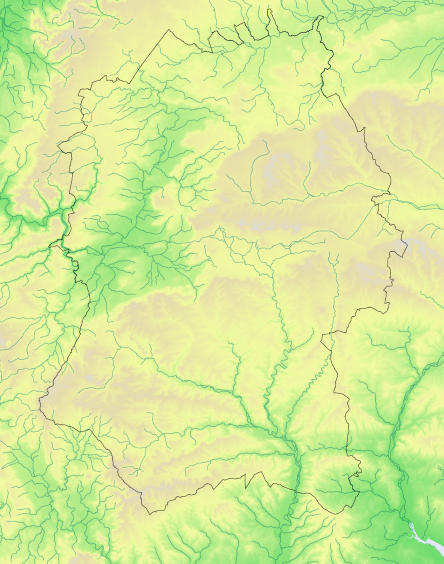Tree Sparrow Passer montanus
Winter distribution change
Local resident, increasing after long term decline
Atlas species lists
- Breeding distribution 1995–2000
- Summer abundance 1995–2000
- Winter distribution 1995–2000
- Winter abundance 1995–2000
- Breeding distribution 2007–2012
- Summer abundance 2007–2012
- Winter distribution 2007–2012
- Winter abundance 2007–2012
- Breeding distribution change
- Summer abundance change
- Winter distribution change
- Winter abundance change
More Tree Sparrow maps
- Breeding distribution 1995–2000
- Summer abundance 1995–2000
- Winter distribution 1995–2000
- Winter abundance 1995–2000
- Breeding distribution 2007–2012
- Summer abundance 2007–2012
- Winter distribution 2007–2012
- Winter abundance 2007–2012
- Breeding distribution change
- Summer abundance change
- Winter distribution change
- Winter abundance change
More maps for this atlas
Map explanation
This map shows the changes which occurred in the winter distribution of the species between 1995-2000 and 2007-2012, but only in the limited selection of tetrads that were surveyed in winter for Birds of Wiltshire (Wiltshire Ornithological Society 2007).
Key
Status
Nos tetrads

Absent to present
19
4%

Present in both
7
2%

Present to absent
4
1%

Not surveyed
Tree sparrows have a vast range across Eurasia, extending from southern Fenno-Scandia, Ireland and Iberia, east to Sakhalin, Japan and the Greater Sundas. They are missing from the far north and most of the Middle East and Indian subcontinent. They have been introduced in North America, the Philippines, Eastern Indonesia and Australia.
In Great Britain their numbers have fluctuated in irregular cycles. Between the 1880s and the 1930s the numbers were generally high; they then declined in the 1940s before rising again from 1957, increasing six-fold by 1964-65. They remained at this high level until 1979 when a decline started, taking them back to the 1955 level by 1990. By 2000, it was estimated that the national Tree Sparrow population was just 3% of the level in the 1970s.
In Wiltshire the county pattern generally reflected the national pattern up to the end of the 20th century. In autumn 1999 WOS set up the Wiltshire Tree Sparrow Recovery Project, providing nest boxes and year-round feeding stations at a number of sites on the Marlborough Downs and in southwest Wiltshire. This has resulted in a steady increase in bird numbers although the number of sites where they have been observed has decreased: Birds of Wiltshire recorded them in 76 tetrads, with breeding confirmed or probable in 50%; WTA2 recorded them in only 60 tetrads but with breeding confirmed or probable in 69%.
References
The following references are used throughout these species accounts, in the abbreviated form given in quotation marks:
“1968-72 Breeding Atlas” – Sharrack, J.T.R. 1976: The Atlas of Breeding Birds in Britain and Ireland. T. & A. Poyser
“1981-84 Winter Atlas” – Lack, P.C. 1986: The Atlas of Wintering Birds in Britain and Ireland. T. & A. Poyser
“1988-91 Breeding Atlas” – Gibbons, D.W., Reid, J.B. & Chapman, R.A. 1993: The New Atlas of Breeding Birds in Britain and Ireland 1988-91. T. & A. Poyser
“Birds of Wiltshire” – Ferguson-Lees, I.J. et al. 2007 : Birds of Wiltshire, published by the tetrad atlas group of the Wiltshire Ornithological Society after mapping fieldwork 1995-2000. Wiltshire Ornithological Society.
“Bird Atlas 2007-2011” – Balmer, D.E., Gillings, S., Caffrey, B.J., Swann, R.L., Downie, I.S. and Fuller, R.J. 2013: Bird Atlas 2007-2011: the Breeding and Wintering Birds of Britain and Ireland
“WTA2” – ("Wiltshire Tetrad Atlas 2 ") the present electronic publication, bringing together the Wiltshire data from “Birds of Wiltshire” and “Bird Atlas 2007-11”, together with data from further fieldwork carried out in 2011 and 2012.
"Hobby" - the annual bird report of the Wiltshire Ornithological Society.

